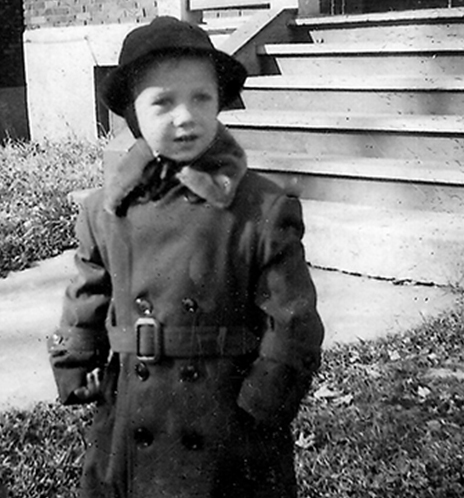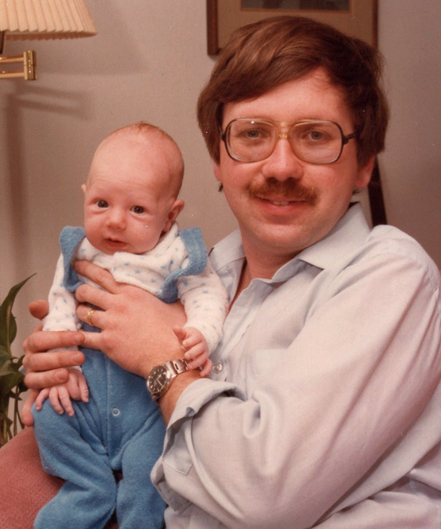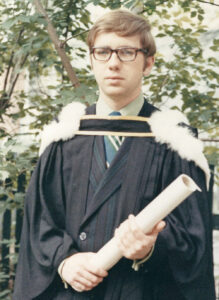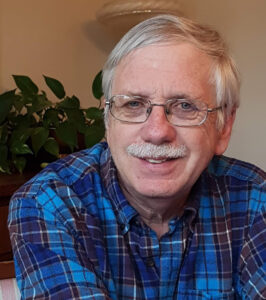In 1984, at the age of 35, Harold Rosenberg discovered he had been adopted. Fourteen years later, he found out who his birth mother was – or so he thought. Today, he is still searching for his roots.
His adoptive parents never told him he was not their natural child, and both were already deceased when he learned the truth. His cousin Dinah, who was almost a generation older than him, could only recall that a Mrs. Baker, a matchmaker in Montreal’s large Jewish community, had done Harold’s adoptive father a favour and found the baby. The Rosenbergs had paid Mrs. Baker $1800 to make the arrangements.

Harold, who is my husband, tried to find out more, but there were no official records of his adoption and even the record of his birth kept by the synagogue was fake. He followed many false leads and ran into brick walls everywhere he turned.
In 1998, he opened The Gazette to see a front-page article about a group of women who had gathered in Montreal to search for their roots. All had been adopted into Jewish families, most eventually discovered that their birth mothers had been Catholic.
The article described a black-market baby ring that operated in Montreal in the late 1940s and early 1950s, trafficking about 1,000 babies to adoptive parents in Canada and the United States. A small group of doctors, lawyers and various intermediaries arranged these adoptions for childless Jewish couples who could not find babies through regular adoption channels. At the time, it was illegal in Quebec to adopt a child from another religion, and, while there were no Jewish babies available, there were lots of Catholic ones. Most of these babies were delivered at a handful of private maternity clinics in Montreal.

The money went to the doctors and the people who arranged the adoptions, or who turned a blind eye to the transfer of small bundles. The mothers were not paid, but they were able to stay for free at the clinics during their last weeks of pregnancy, and they did not have to worry about medical costs.
When the ring was busted in 1954, The Gazette reported, several lawyers and a woman named Rachel Baker were arrested. Suddenly, Harold realized that Mrs. Baker did not just find a baby for his parents, she arranged for many under-the-table adoptions.
Years later, his cousin Moe told Harold that he had seen a tiny hospital bracelet with the name “baby Boyko” in the Rosenbergs’ safe deposit box, and he recalled that a girl named Mary Boyko had lived in his neighbourhood. Harold checked a list that a volunteer researcher had made of single mothers who gave birth in the late 1940s, and there was the name: Mary Boyko. She must have been his birth mother!

Harold asked a friend, a retired police detective, to look for her. It was a challenge because Mary had married someone named Tremblay, and Tremblay is one of the most common family names in Quebec. Nevertheless, three days later, the friend phoned to say that he had found her. Unfortunately, she was deceased, but he had tracked down her husband and her son. They said they had been looking for Mary’s baby for years, and they couldn’t wait to meet him.
Harold became good friends with his new-found half-brother, Sonny Tremblay. All the pieces seemed to fit, except for a few minor details. Meanwhile, he became an unofficial spokesperson for black market babies, participating in television documentaries in English and in French, and being interviewed for newspaper and magazine articles. He hoped to help others adoptees, as well as their birth mothers, learn the truth.
In 2020, our sons persuaded Harold to try to find his birth father. He did a DNA test, and he asked Sonny to do one also. Everyone was shocked when the results came back – they were not related! Just to be sure, Sonny’s cousin also took a DNA test, and it confirmed that the cousin is related to Sonny, but not to Harold. He then hired genetic genealogist Mary Eberle, of DNA Hunters, to help him make sense of his DNA results. He had many matches, but no one closer than a third or fourth cousin. Clearly, Harold is of Eastern European descent, and his birth father was probably Ukrainian. Many of his matches on his father’s side live around Cleveland, Ohio, an area where many Eastern Europeans settled.

Recently, he made a big break-through and got in touch with Lynne, a woman in Cleveland with whom he shares a whopping eight percent of his DNA. She is probably a first or second cousin and has been delighted to help out. Harold is still not sure who his birth father was, but at least he now has a genuine, close genetic cousin.
As for the identity of his birth mother, that remains a mystery. Was Harold really born at a Montreal hospital, as his cousin told him? And what should he now make of the story of the baby bracelet and the name Boyko? Hopefully, he will find out some day soon.
This story is also published on the collaborative blog https://genealogyensemble.com.
Further information:
Ingrid Peritz, “’Black-market babies’ seek Montreal roots,” The Gazette, May 9, 1998, page 1, www.Newspapers.com
Adam Elliott Segal, “Black Market Babies”, Maisonneuve Magazine, July 18, 2017, https://maisonneuve.org/article/2017/07/18/black-market-babies/
CTV News Montreal, “Special Report: Black Market Baby”, Dec 18, 2017, https://montreal.ctvnews.ca/video?clipId=318300 This interview was done when Harold mistakenly thought that Mary Boyko was his birth mother. I have included it here anyway because it includes more background on the black-market baby ring.
